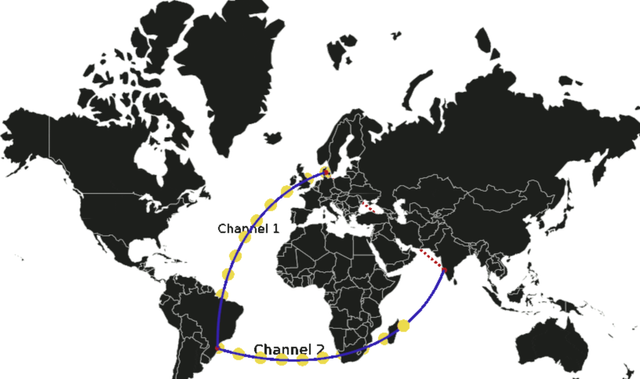Ethereum Scaling Advances With 'First' Off-Blockchain Payments
A team of ethereum developers has successfully completed what they say is the first off-blockchain transaction on the decentralized application network.Sent from Copenhagen, Denmark, to Mumbai, India, the test saw the developers behind micropayments project Raiden send ether via clients operated by members in those cities last week. While small in scale, ethereum developers more broadly see the proof-of-concept as a key technical step toward solving one of the pressing issues facing not only the network, but all public blockchains.Ethereum and bitcoin, for example, currently each support only a fraction of the transactions seen daily on centralized payment networks like Visa or MasterCard. As developers seek to take on this challenge, scaling is widely seen as a fundamental issue yet to be solved.But, there are advancements being made. Raiden, a team of five working to bring microtransactions to the ethereum blockchain, draws inspiration from the Lightning Network, an in-development off-chain transaction network that's often trumpeted as a fix for scalability on the bitcoin blockchain.Together, the emergence of the two networks can be seen as evidence small advancements toward this wider goal are being made across blockchain communities.CEO of Brainbot Technologies Heiko Hees, who leads development of Raiden Network, explained the significance, telling CoinDesk:
"We now have the alpha of a system to do scalable, fast and extremely cheap token transfers off-chain in ethereum."
Once the network moves beyond the testing stage, users will be able to tap Raiden for a variety of ethereum applications, he said.
This could include making micropayments for seconds spent watching online videos or facilitating trade in Internet of Things-enabled markets, where machines pay other machines for chunks of bandwidth or temperature sensor data.Already, the prediction market Gnosis and the file storage system Swarm plan to build on top of the speedy microtransaction network.
Transferring 'state'
A key innovation behind payment channel-style transactions is that they allow users to route cryptocurrencies through a network of intermediaries, without trusting any of the intermediaries with the funds.But there's still a ways to go. In the case of Raiden Network's first transaction, the intermediary node was stationed in Florianopolis. Further, ethereum was built with more than payments in mind. The smart contract platform applies the technology behind bitcoin to a range of Internet applications, including an identity authentication system and a censorship-resistant Twitter.The goal is to eventually extend these off-chain payment channels to "state channels", which apply a similar concept to non-monetary exchanges.Martin Köppelmann, founder of Gnosis, sees state channels as a more general purpose version of payments channels. "State channels are for state, or smart contract state," he said.Köppelmann provided an example of a state change that’s outside the realm of payments."You can also use it for a chess game," he continued. "Every move one of us makes is a signed message that we send each other."The idea is to move most of the transactions from the blockchain to these off-chain channels. So, to take the example of a series of moves in a chess game, Köppelmann explained that only the final result would need to be written on the blockchain.
Using Raiden
The next steps for Raiden are "hardening" the software with a beta launch by the end of the year, according to Hees, and to generalize the network so that it supports more ethereum applications (say chess-like examples or the censorship-resistant version of Twitter).However, Hees thinks that it’s adequate right now for the audience ethereum has."Token transfers are probably the most important use case and having them off-chain with Raiden already enables all sort of dapps to scale as in the end there is mostly a token transfer involved," he said.Köppelmann believes the micropayment network is sufficient for users to make bets on the prediction market Gnosis, for example.Other proposed use cases include prediction markets, decentralized exchanges, notaries, crowdfunds and blockchain-based votes.
Ethereum's future
There are other scalability-focused projects out there as well.While Raiden Network is the main state channel project in the works, and the first to unveil a proof of concept, there’s at least one more to date. Avocado, led by ethereum developer Jehan Tremback, is a low-level state channel that aims to support the ethereum applications that Raiden Network will support in the midterm.Off-chain networks aren’t the only proposed solution to the scalability problem, though.Köppelmann also noted sharding, a theoretical process by which the blockchain would be split like a traditional database.But Köppelmann sees state channels as a big piece of the puzzle."Whatever becomes a big application on ethereum will need to be on state channels," he said, adding:
If you really want something with millions of users that goes viral, the blockchain can currently not handle it."

